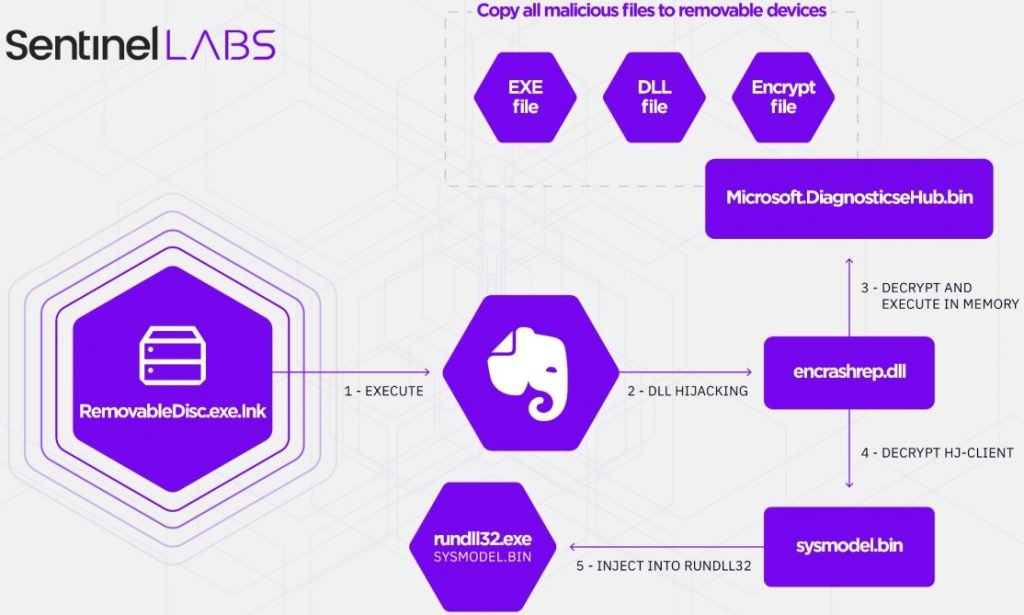Researchers at security firm SentinelLabs report the detection of a new Chinese-speaking hacking group identified as Aoqin Dragon and which has been active since 2013. According to experts, this group focuses on cyber espionage against the government, educational, and telecommunications companies in Australia, Hong Kong, Singapore, and Vietnam.
The main attack method, employed by this group between 2012 and 2015, involves Microsoft Office documents specially crafted for the exploitation of known vulnerabilities such as CVE-2012-0158 and CVE-2010-3333. This tactic was first detected in 2014, in a phishing campaign associated with the Advanced Persistent Threat (APT) operation known as Naikon.
SentinelLabs identified a second hacking method associated with Aoqin Dragon, based on hiding malicious executables in icons of fake antivirus products. After execution, a malware sample was delivered to the affected systems.
Starting in 2018, hackers left these tactics behind to resort to using a removable disk shortcut file; clicking this icon triggers a DLL hijack and loads an encrypted payload to deliver a backdoor. This malware runs under the name “Evernote Tray Application” and is executed at system startup; if any removable drives are detected, a copy of the payload will be created to expand the infection.

At least two backdoor variants used by this group have been identified. Known as Mongall, the first backdoor is a DLL injected into memory, protected with encryption and in constant maintenance since its launch in 2013. This backdoor profiles the host and sends the details to the C&C using an encrypted channel.
Moreover, Heyoka is an open source exfiltration tool that uses spoofed DNS requests to create a two-way communication tunnel. Hackers employ Heyoka by copying files from compromised devices to prevent affected system administrators from detecting malicious activity in its early stages.
Aoqin Dragon is an unusual case, as it managed to go unnoticed for almost ten years. This has been possible due to the continuous evolution of its strategies and the periodic change of tactics, so it is highly likely that this cybercriminal group will change its behavior again in the near future.
Feel free to access the International Institute of Cyber Security (IICS) websites to learn more about information security risks, malware variants, vulnerabilities, and information technologies.

He is a well-known expert in mobile security and malware analysis. He studied Computer Science at NYU and started working as a cyber security analyst in 2003. He is actively working as an anti-malware expert. He also worked for security companies like Kaspersky Lab. His everyday job includes researching about new malware and cyber security incidents. Also he has deep level of knowledge in mobile security and mobile vulnerabilities.











